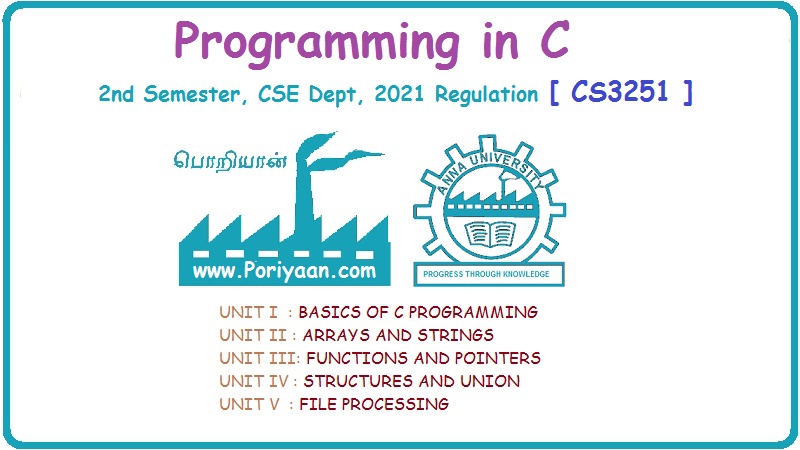Programming in C: Unit III (b): Pointers
Generic Pointers
with Example C Programs
A generic pointer is a pointer variable that has void as its data type. The void pointer, or the generic pointer, is a special type of pointer that can be used to point to variables of any data type. It is declared like a normal pointer variable but using the void keyword as the pointer's data type.
GENERIC
POINTERS
A
generic pointer is a pointer variable
that has void as its data type. The void pointer, or the generic pointer, is a
special type of pointer that can be used to point to variables of any data
type. It is declared like a normal pointer variable but using the void keyword
as the pointer's data type. For example,
Programming Tip:
A
compiler error will be generated if you assign a pointer of one type to a
pointer of another type without a cast.
void *ptr;
In
C, since you cannot have a variable of type void, the void pointer will
therefore not point to any data and thus cannot be dereferenced. You need to
type cast void pointer (generic pointer) to another kind of pointer before
using it.
Programming Tip:
A
pointer variable of type void * cannot be dereferenced.
Generic
pointers are often used when you want a pointer to point to data of different
types at different times. For example, look at the code given below.
#include <stdio.h>
int main()
{
int x=10;
char ch = 'A';
void *gp;
gp = &x;
printf("\n Generic pointer
points to the integer value = %d", *(int *) gp);
gp = &ch;
printf("\n Generic pointer now
points to the character = %c", (char*) gp);
return 0;
}
Output
Generic pointer points to the
integer value = 10
Generic pointer now points to the
character = A
It
is always recommended to avoid using void pointers unless absolutely necessary,
as they effectively allow you to avoid type checking.
Programming in C: Unit III (b): Pointers : Tag: : with Example C Programs - Generic Pointers
Related Topics
Related Subjects
Programming in C
CS3251 2nd Semester CSE Dept 2021 | Regulation | 2nd Semester CSE Dept 2021 Regulation
